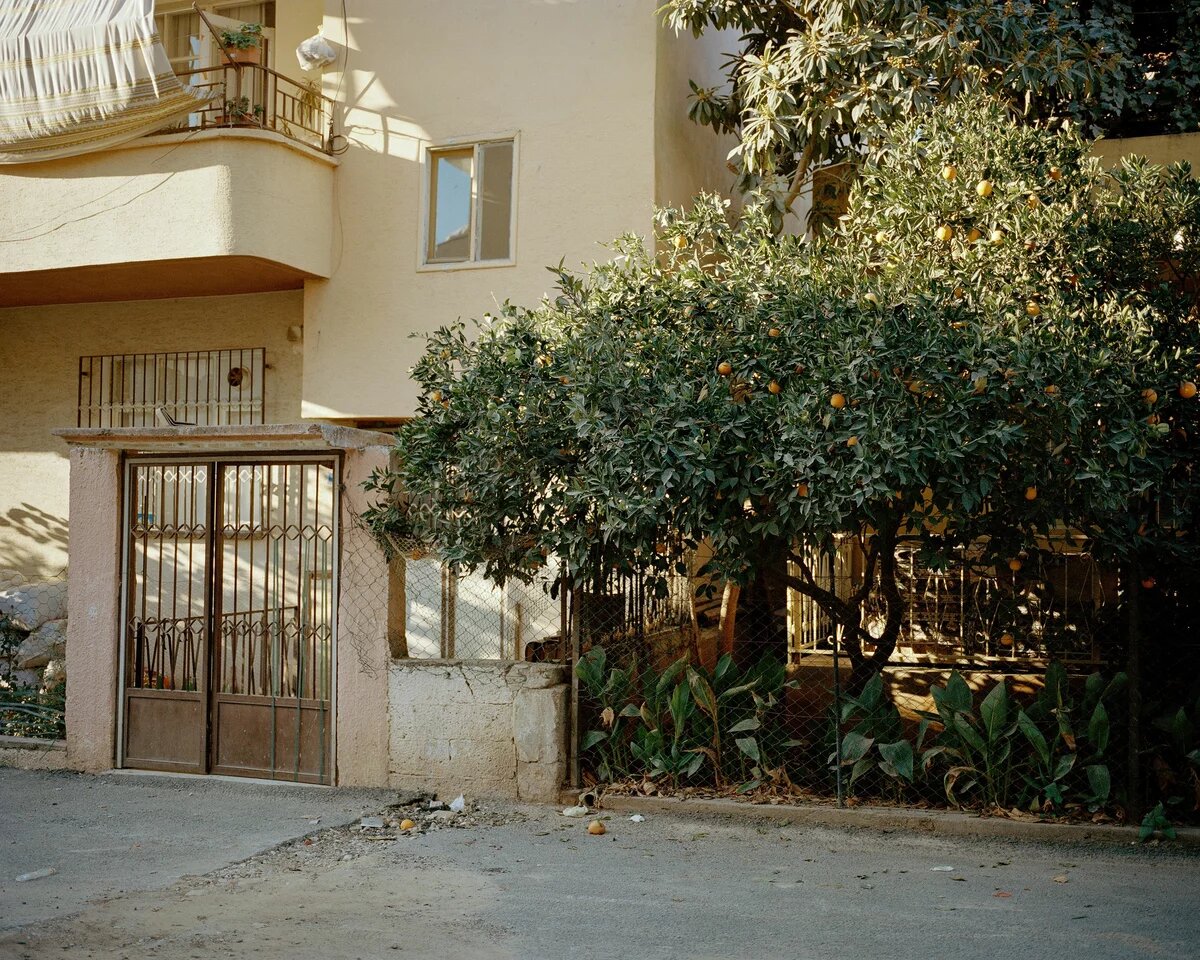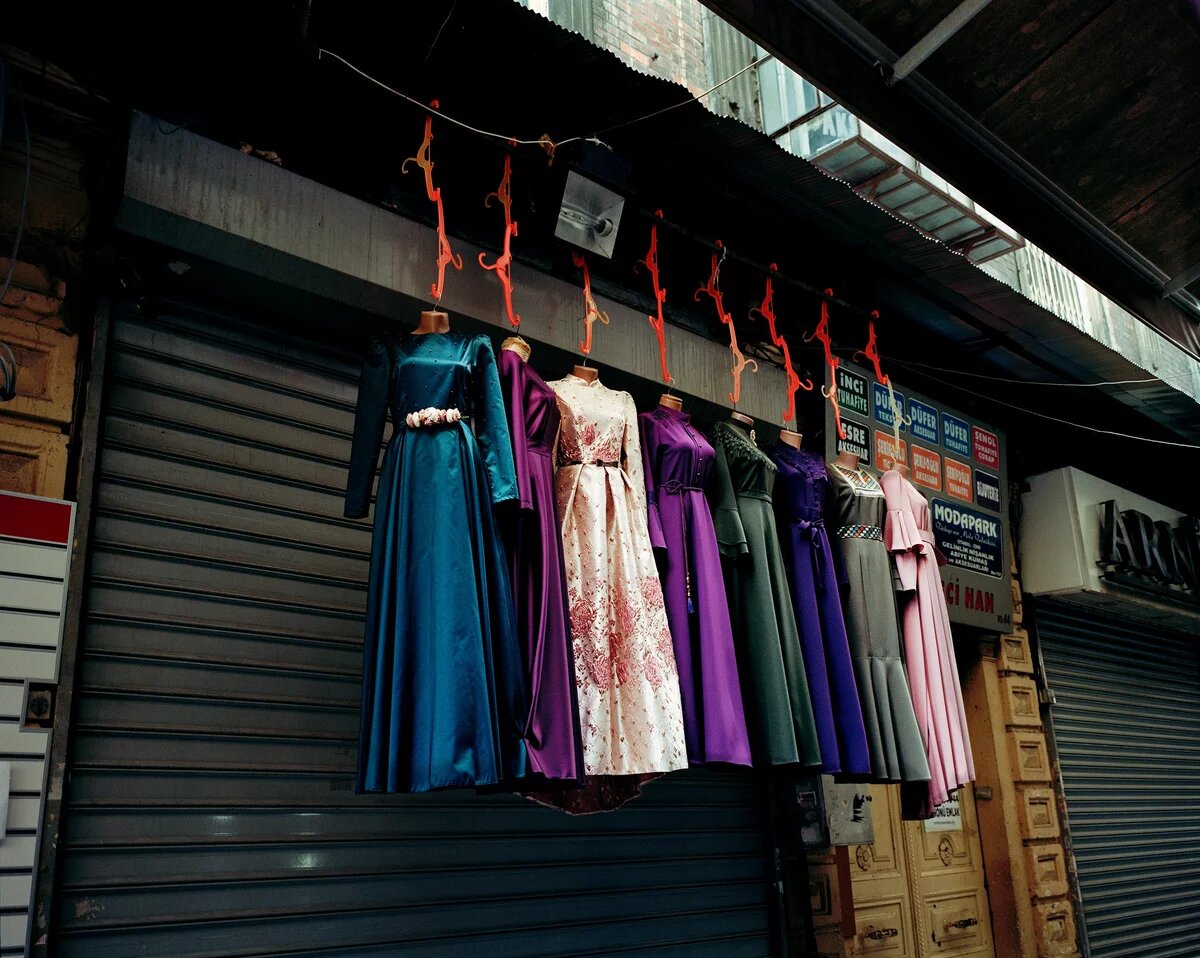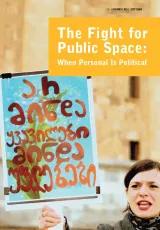
Up to five women are murdered every day in Turkey. Photographer Emine Akbaba collected evidence videos and took photos of the sites of crime. As for herself, she says that she is no longer sure how to come to terms with everything she has seen. ➢ Read the interview in German here.

In your most recent project, “Precious Blossom,” you have photographed places in Turkey where violence against women was perpetrated. Is that something you’ve been doing for a long time?
Emine Akbaba: The first time I became aware of the topic of violence against women in Turkey was with the case of a young student from Mersin, Özgecan Aslan. In 2015, she was killed by a minibus driver after defending herself when he tried to rape her. That was the first time that the murder of women in Turkey was reported in the international press.
I was studying in Denmark at the time, and I still remember my sister sending me a text message. We were both shocked by the violence. The woman’s body was cut into pieces, burned, and thrown into the river like garbage. I couldn’t believe it. I wanted to understand how something like that could happen. To do so, I wanted to travel to the city where it occurred in order to comprehend what happened.
You visited the site of the crime yourself, and that was just the start of it. How did you go about it?
There is an internet platform, Kadin Cinayetleri, with a map showing where women have been murdered and how many at each location. That was the basis for my work. I looked at the places. The platform also gives the names of the victims, their date of death, their date of birth, and says who killed them, how they were killed, and for what reason. The predominant reason women were murdered was that they wanted a divorce. Then I googled the names and followed the news.
According to the platform, 1,675 women were murdered between 2010 and May of 2017. But it can be assumed that the real number is much higher. I also contacted various NGOs working to protect women from violence and spoke with them about the current situation. Since the coup attempt on July 15, 2016, however, over 1,000 such NGOs have been closed because their state funding was withdrawn.
Then I found the stop in Mersin where the student Özgecan Aslan had waited for the bus, after she had been to a shopping mall with a friend. I got on one of the buses there myself. And, like the victim, I was the only passenger, alone with a driver in a minibus, and I was scared. It felt totally surreal. The experience affected me deeply.
You really took a chance. You traveled alone through Turkey for your work. Did you encounter any problems?
For this project I went to the sites of the incidents. I didn’t have many problems with the authorities. So in comparison with other projects, it was relatively easy. The real difficulty was doing justice to the women. I want to portray them appropriately, do justice to their stories, and not distort anything. And no matter what subject I choose, I always try to become an expert on it. I want to dive into the topic and learn as much about it as I can. I’m not satisfied just doing research from home, even though that is part of the process.
It doesn’t matter to me if the work is dangerous. In this case, I wanted to know how the sites of the crimes looked. I wanted to put names and faces to the dead. I wondered how they felt. Were they alone? Did they defend themselves? Were they attacked in a public place and no one came to their aid? Or did it happen in secret?
You have Turkish parents and speak the language fluently. Were there other important factors in your work?
Speaking Turkish, knowing the culture, and not looking conspicuous were all advantages. Usually I didn’t even mention that I was a journalist when people approached me while I was taking pictures. Instead, I prefer to say I’m a student. In addition, I often need to pretend I’m married so that men leave me alone. Still, I have never felt truly threatened there. But my behavior is totally different in Turkey. I would never walk around with red lipstick, nail polish, and eyeliner.
Is personal appearance a common cause of hostility?
Definitely. Like in the case of Cansu. She is the only woman who had no problem letting me take pictures of her for this project and who is recognizable in one of the photographs (editorial note: the photograph is part of the work but is not shown here). When we met, she told me that she was insulted in public for the way she dressed. That’s not banal or harmless. It’s the beginning. No one has the right to judge how you’re dressed. She was indignant while telling the story. She can’t understand it. The same thing goes for me. I am a religious person. I am a Muslim. And I think that you can’t use religion to justify restricting someone’s fundamental rights. But very often that’s exactly what happens.
So you made sure not to stand out. How else did this project affect you?
The project put a great strain on me. As part of my research I watched many videos of attacks, which was really upsetting. I don’t know how to process it all, and I notice that I’ve become rather numbed. Then I chose about 50 cases and made a collage out of pictures of the victims that I found online. They hung on my wall, haunting me. Every time my sister or I walked by, we thought we recognized someone we knew.
Your own photographs show two people and otherwise only places where women were attacked. Looking at them without knowing anything about them, however, the viewer thinks they’re simply beautiful pictures of idyllic places. What’s the idea behind that?
Under the orange tree shown in one of the pictures, a woman had her throat cut by her husband. I couldn’t find the place at first, so I asked an old man where it was. He offered me tea and talked to me, but not about the attack. I went back the next day, but he didn’t want to talk to me anymore. He closed his eyes and said, “Over there in the corner, that’s where it happened.” I was there early in the morning to get good light. I want to show these places from their most beautiful side, as a way to highlight the contrast with the gruesome events that happened there.
Was it hard to get people to talk about this topic?
Yes, very difficult. A 36-year-old woman told me her story. She did not want to be photographed. She is divorced but still lives in the same house as her husband – because of their son. Her husband always hit her, and at one point he tried to kill her. He explained that all she had to do to make him stop was to say it hurt. But she didn’t want to give him the satisfaction. So she ran out into the street. Her employer knew about it. When I visited her at work, he truly didn’t understand why I wanted to talk with her about it. “Haven’t you found anything else?” he asked.
Unfortunately, the woman was in a very bad state after our talk. She started to have nightmares because she had repressed what had happened for so long, and our conversation brought it all to the surface. I felt terrible about it. It still bothers me, and I don’t know how I ought to deal with it. I asked her if she wanted help, but she’s had bad experiences with the police and is not yet ready to come to terms with what happened to her.
How do viewers react to seeing your photographs and videos?
I saw the reaction of viewers at the opening of a group exhibition that included a couple of my works. I am merciless. I show close-ups from security cameras and photographs. One video shows a woman being stabbed 25 times; at the time she had already been separated from her husband – the attacker – for 10 years. My goal is for people to be alarmed. I don’t want to sugarcoat anything. There is no beautiful way to kill someone. You take away someone’s sister, someone’s mother.
Speaking of mothers. In your opinion, what role do they play in Turkey?
My photography is always heavily influenced by what my own mother experienced. She inspires me. I’m afraid that I’ll repeat her decisions, and I’ve dealt with that topic in my work. Her family is ultra-conservative. They don’t understand why I’m still unmarried and why I work as a photographer. But I want to keep my freedom.
What role do the attackers play for you?
I have consciously not dealt with the attackers. I don’t want to give them a platform. I do show one murderer, though. There was an older man on one of the many popular dating shows on Turkish TV. He recounted how he had once made a gaffe. His wife had not behaved how he wanted, and he had to go to prison. He had simply killed her. But he identified so little as a murderer that he only referred to it as a “gaffe.” On the contrary, he saw himself as a victim – as a victim of fate, since his wife had brought shame upon him.
Dating shows?
The idea is to find the love of your life. Everyone is familiar with the people who appear on these shows. Everyone watches. Erdogan thinks they’re immoral and tried to ban them. But society expects women to get married in order to achieve a certain status. They are only fully-fledged human beings when they have a husband. So these shows actually fit very well into the conservative context.
You speak of honor and shame. They are consistently invoked as justifications for violence. How do you account for the existence of this concept, and how do you think it works?
Honor is a very complicated and important concept in Muslim countries. It’s difficult to grasp, and it’s difficult for me to explain despite having grown up within this belief system. Honor is omnipresent in Turkey. It’s always about what others think of you. What you think about yourself is of no importance.
Do you see this as a contrast to Western individualism, which is so often concerned with what each person thinks is most important for him or herself, and only secondarily how that might be compatible with one’s social context?
Yes. The individual is not the point when honor is at stake. Women in particular are then simply supposed to be humble and chaste, to represent their families. A young girl represents her father, a wife her husband, a mother her son.
A woman can violate family honor, for example, by wearing revealing clothing, by openly expressing herself in a way that appears inappropriate, by being too loud. A Turkish government official publically lamented that women no longer blush and look at the ground when a man passes by. Women are thus supposed to be very submissive, to have no opinions of their own. They ought to stay in the background. If a woman does not act like this, it reflects poorly on her family. The family loses face, and that is more important than the happiness of one individual person.
By reacting with violence, however, they maintain their reputation. How does that fit with religious values?
Many women in Turkey are killed for asking for a divorce, which dishonors the husband. And in Turkey, a man without honor is no man at all. That outweighs the law. Recently, rural regions have witnessed an increasing number of honor suicides. There’s a new law that punishes honor killings with life in prison. Since then, women thought to have dishonored their families are forced to commit suicide instead. One common method is to lock them in a room with a rope. They are then told, “You surely don’t want your father to go to prison. You know how much shame you have brought upon us.” This is rarely reported on in Turkey, but people definitely know what’s going on.
In the past, men displayed their bloody swords to prove that they had defended their honor. Little has changed.
Is the topic of violence against women discussed in the media?
Barely, although it’s a huge problem. On average, three to five women are murdered every day in Turkey. And that only accounts for the murders that get reported.
Cansu, who has been photographed by me, was spit on by an older man in the city of Van. “Aren’t you ashamed to be walking around here in a shirt?” he muttered at her. Quite recently a video went viral in which a woman on a bus was beaten by a male passenger for wearing clothing that was too short. People are resigned to it; they don’t pay any attention or they ignore it.
Do you think that the government benefits from the concept of preserving one’s honor? Is it helpful for a functioning society?
It plays into the government’s hands, sure. It keeps people from stepping out of line. People don’t like it, but they accept it.
Here in Germany, people often speak of a strong feminist wave in Turkey. Have you noticed this resistance?
Yes. More and more women are standing up and giving their all. I’ve spoken with several NGOs – Kadın Cinayetlerini Durduracağız and Mor Çatı, to name a few. The women who work there do so as volunteers, in addition to their day jobs, and they have hardly any resources. The first of the two organizations I just mentioned has been around for ten years. The other even longer. They document murders of women. Since then, the topic has received increased attention. But I think something has to change among the men. They have to understand the harm they are doing to women. They need to change how they think. People have to be enlightened about the fact that a woman is an individual. And that lifestyle is an individual decision.
Thank you for the interview.
The interview was conducted by Valerie-Siba Rousparast.
